The top 21 phrases to master in different languages
When you go abroad, learning common phrases in different languages is always a good idea, don’t you think? Even if it’s just being able to say hello, goodbye, knowing your P&Qs or being able to order a drink, it makes you feel a little more polite than just expecting the locals to know English.
Given this, we thought it’d be helpful to bring you the 21 most common phrases in different languages to learn before your next trip!
Luckily for us in the APS Team, we have plenty of native speakers of the below languages, so you’ll be happy to know you won’t just be talking in Google Translate speak..!
Use the jump links to skip to the sections that may be relevant.
Being Polite | Making Conversation | Ordering Food & Drink | Needing help
Being polite in French / Italian / Polish and other languages
Hello

Spanish – Hola
Italian – Ciao
French – Bonjour
Polish – Cześć
German – Hallo
Japanese – こんにちは / ko-n-ni-chi-wa
Goodbye

Spanish – Adiós
Italian – Ciao
French – Au Revoir
Polish – Do widzenia
German – Auf Wiedersehen
Japanese – さようなら / sai-yoh-na-ra
Yes
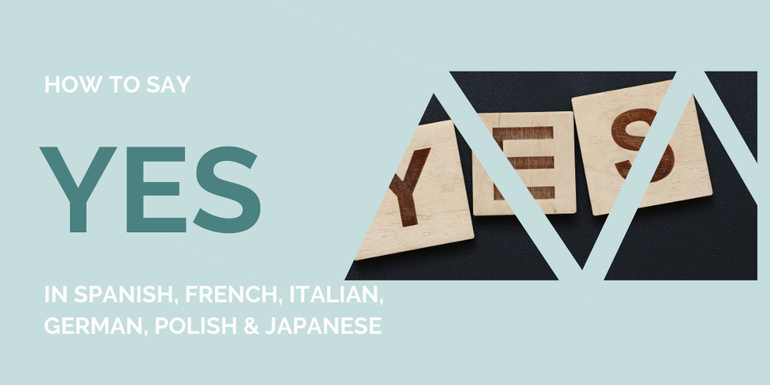
Spanish – Sí
Italian – Sì
French – Oui
Polish – Tak
German – Ja
Japanese – はい (hai)
Please

Spanish – Por favor
Italian – Per favore
French – S’il vous plaît
Polish – Proszę
German – Bitte
Japanese – 〜ください・お願いします (~ku-da-sa-i / onegaishimasu)
No
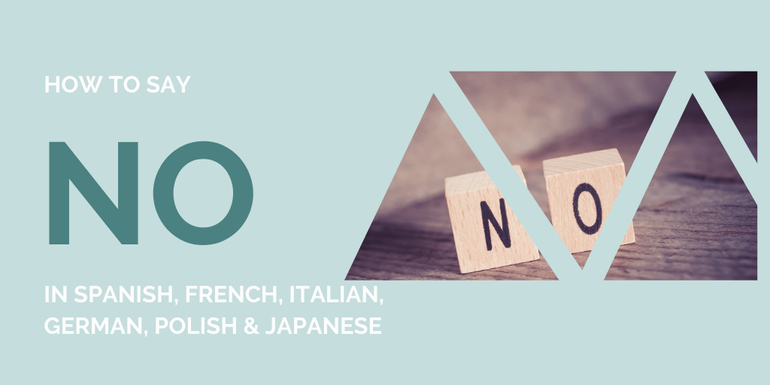
Spanish – No
Italian – No
French – Non
Polish– Nie
German – Nein
Japanese – いいえ (iie (ii-eh))
Thank you
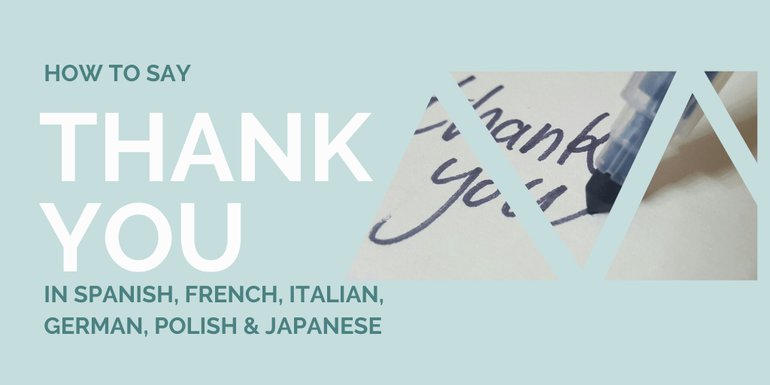
Spanish – Gracias
Italian – Grazie
French – Merci
Polish – Dziękuję
German – Danke
Japanese – ありがとうございます (arigatou gozaimasu)
How are you?

Spanish – ¿Cómo estás?
Italian – Come stai?
French – Comment ça va?
Polish – Jak się masz?
German – Wie geht es dir?
Japanese – おげんきですか / ogenki desu ka
I’m fine, thanks

Spanish – Estoy bien, gracias
Italian – Sono buono, grazie
French – Bien merci
Polish – Czuję się dobrze, dzięki
German – Es geht mir gut, danke
Japanese – げんきです/ genki desu
Sorry

Spanish – Lo siento
Italian – Mi dispiace
French – Pardon
Polish – Przepraszam
German – Es tut mir leid
Japanese – すみません / sumimasen
Excuse Me / Pardon
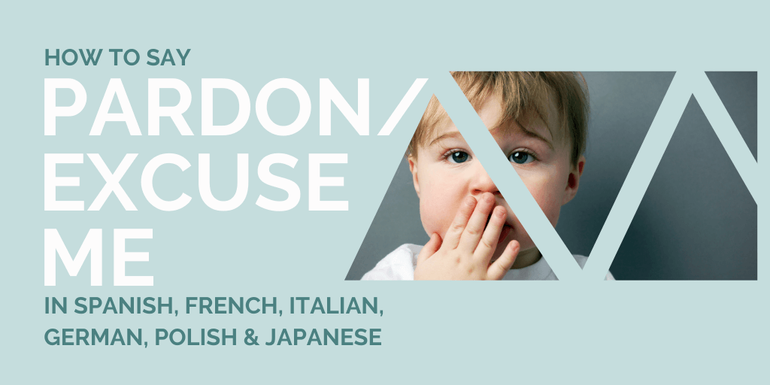
Spanish – Disculpe
Italian – Mi scusi
French – Excusez-moi
Polish – Przepraszam
German – Entschuldigung
Japanese – すみません / sumimasen
Now that we’ve mastered phrases in different languages for being polite, let’s move on to how to make and keep conversations going.
Making conversation in Spanish / Japanese / German and other languages
What’s your name?
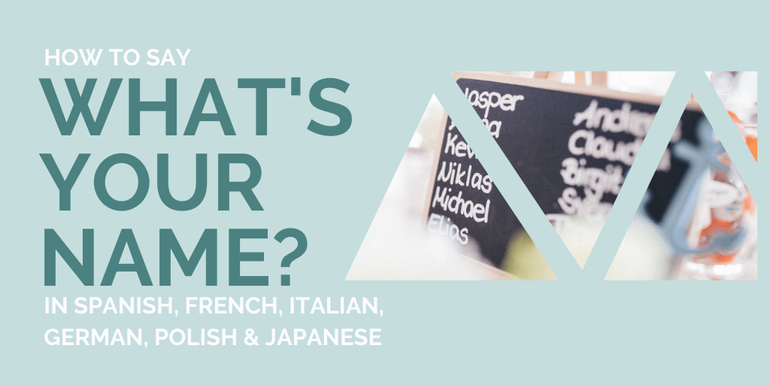
Spanish – ¿Cómo te llamas?
Italian –Come ti chiami?
French – Comment t’appelle tu?
Polish – Jak masz na imię?
German – Wie heisst du?
Japanese – お名前はなんですか / o-na-ma-e wa nan desu ka
My name is…

Spanish – Me llamo…
Italian – Mi chiamo…
French – mon nom est… / je m’appelle …
Polish – Nazywam się…
German – Ich heisse…
Japanese – 私は〜〜です / watashi wa — desu
I don’t understand

Spanish – No entiendo
Italian – Non capisco
French – Je ne compris pas
Polish – Nie rozumiem
German – Ich ferstehe nicht
Japanese – わかりません / wakarimasen
Could you speak slower, please?

Spanish – ¿Podrías hablar mas despacio, por favor?
Italian – Potresti parlare lentamente, per favore
French – Pouvez-vous parler plus lentiment s’il vous plait?
Polish – Mógłbyś mówić wolniej, proszę
German – Können Sie bitte langsam sprechen?
Japanese – ゆっくり話してください / yu-kku-ri ha-na-shi-te ku-da-sa-i
Now on to the all important phrases in different languages to help you order refreshments, compliment the chef and ask for the bill.
Ordering Food & Drink in Spanish / French / Italian and other languages
I’d like a beer / coffee / water please
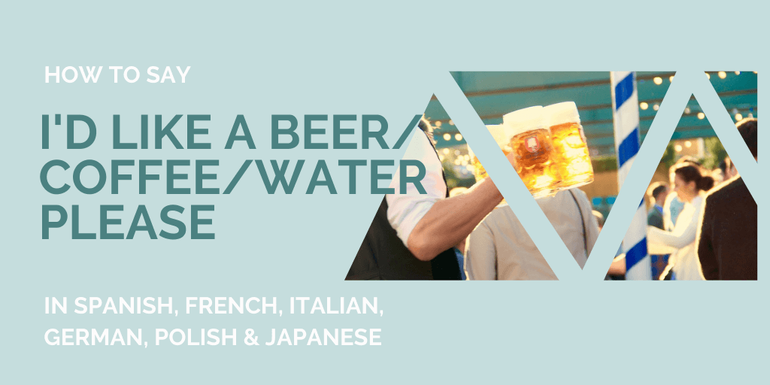
Spanish – Me gustaría una cerveza / un café / un agua
Italian – Vorrei una birra / un caffe / una acqua
French – Je voudrais une bière / un café / d’eau
Polish – Poproszę piwo / kawę / wodę
German – Ich möchte ein Bier/ Kaffee/ Wasser
Japanese – ビール・コーヒ・水をください / bi-ru / ko-hi / mizu o ku-da-sa-i
Could I see a menu? / Please bring me a menu

Spanish – ¿Puedo ver la carta?
Italian – Vi prego di portarmi un menu
French – Pourrais-je voir un menu s’il vous plaît
Polish – Czy mogę prosić o menu?
German – Die Speisekarte, bitte
That was delicious!

Spanish – Estaba exquisito!
Italian – Era delizioso!
French – C’était délicieux!
Polish – To było pyszne!
German – Es war lecker!
Japanese – おいしかったです / o-i-shi-ka-t-ta desu
Can I get the bill, please

Spanish – La cuenta, por favor
Italian – Il conto, per favore
French – l’addition s’il vous plaît
Polish – Poproszę rachunek
German – Die Rechnung, bitte
Japanese – おかんじょうをお願いします / o-kanjo-u o o-ne-ga-i-shi-masu – although not really used. In most restaurants in Japan, they bring the bill to you as you eat, you wouldn’t usually need to ask for it
Lastly, and actually arguably, some of the most important phrases in different languages to learn in case you’re ever in distress, need assistance or need to borrow a phone.
Asking for help in different languages
Help!

Spanish – ¡Ayuda!
Italian – Aiuto!
French – Aidez-moi!
Polish – Pomocy!
German – Hilfe!
Japanese – 助けて! / ta-su-ke-te
Can I use your phone?
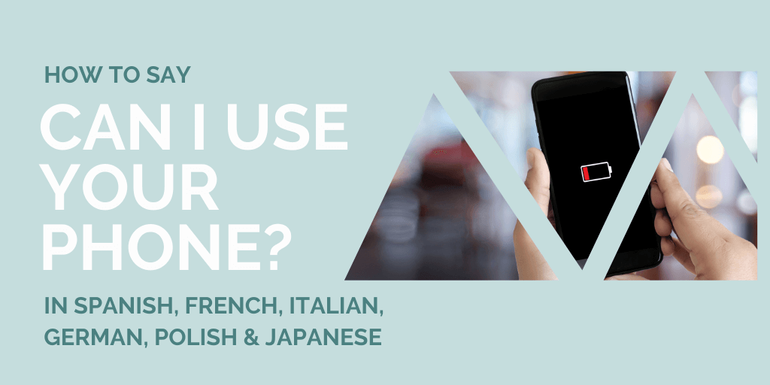
Spanish – ¿Puedo usar tu teléfono?
Italian – Posso usare il tuo telefono?
French – Puis-je utiliser votre téléphone?
Polish – Czy mogę skorzystać z Twojego telefonu?
German – Kann ich Ihr Handy benutzen?
Japanese – お電話を使ってもいいですか / o-den-wa wo tsu-ka-tte mo ii desu ka
Leave me alone!

Spanish – ¡Déjame en paz!
Italian – Lasciami solo!
French – Laissez moi tout seul!
Polish – Zostaw mnie w spokoju!
German – Lass mich allein!
Japanese – ほっといてよ!/ ho-tto-ite-yo
So, what are you waiting for? If this has whet your appetite to really learn a new language, Memrise comes highly recommended by the team here!
All images courtesy of Pixabay.
